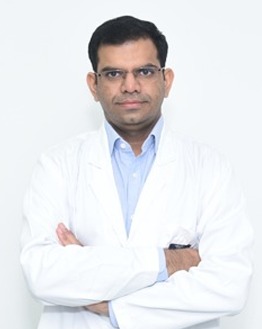Diabetes mellitus is a metabolic disorder that affects your endocrine system. When you eat food, most of it gets transformed into glucose or sugar. This glucose becomes a prime source of energy when absorbed by cells. But insulin is required to ensure your body is absorbing glucose. But when the insulin levels in the blood drop, sugar cannot be absorbed by the cells and instead builds up in the bloodstream. It can either be due to inadequate production of insulin or the cells’ inability to absorb it. This condition is known as diabetes, and there are different kinds of it.
Type 1 Diabetes:
In Type 1 diabetes, your body does not produce enough insulin to support your body. It tends to manifest before the age of forty and often even in teenagers and young adults. It accounts for only 5% to 10% of all diabetes cases. It is progressive although the rate at which it progresses varies from person to person.
Type 2 Diabetes:
Type 2 diabetes is a metabolic condition in which our body can’t produce enough insulin to control blood sugar. It’s the most common type of diabetes and accounts for nearly 95% of all cases. While obesity is the leading cause of this condition, other factors such as genetics and lifestyle choices like improper diet with excess sugar may also increase the risk.
Gestational Diabetes:
It usually occurs in women during pregnancy, during which time blood glucose levels are substantially high. Between 2% and 10% of all pregnant women suffer from it. The condition may disappear completely after pregnancy, although a small percentage do contract diabetes mellitus later.
Prediabetes:
Prediabetes is a state where the body has higher glucose levels than normal but not high enough to diagnose as diabetes. It is a state which can last for years before transitioning to full-blown diabetes.
Diabetes requires constant management or it can lead to problems in the circulatory, nervous and immune systems. In some cases, it can also cause serious health conditions, such as heart disease, stroke, blindness, neuropathy disorders and even kidney failure.
Complications:
- Nerve damage
- Frequent infections
- Heart diseases
- Kidney diseases
- Skin disorders
- Eye damage
- Dementia
Causes:
- Ageing
- Obesity
- Family history
- Low levels of insulin
- High levels of blood sugar
Symptoms:
- Increased thirst and hunger
- Frequent urination
- Fatigue
- Blurred visions
- Infections
- Numbness in hands
Diagnosis:
The diagnosis process for type 2 diabetes is fairly simple, and everyone at risk should get tested. Our doctors will perform a physical exam to evaluate the patient’s symptoms and medical history. They will also order some blood tests to check the sugar levels in the blood.
Most patients also have some underlying conditions due to a long history of diabetes. Depending on the symptoms, our doctor may also recommend screening tests, such as ultrasound, blood test and X-ray to determine the severity of the condition and possible treatment options.
Treatment:
The most-effective treatment for type 2 diabetes includes weight-loss and lifestyle changes along with diabetes management. While some people can make these changes easily, others may have a hard time. Therefore, our doctors perform bariatric surgery to control the disease and improve the outcome.
In type 2 diabetes, Bariatric or weight-loss surgery is the most viable option for people who are severely obese and cannot lose weight by traditional means. For the surgery, our doctor performs several procedures to restrict food intake or interrupting the digestive process to trigger weight loss and metabolism.




.jpg)


